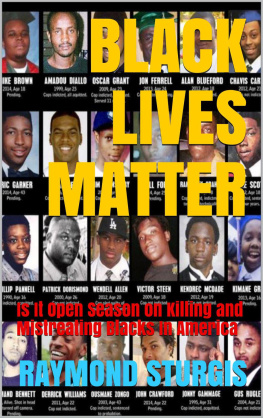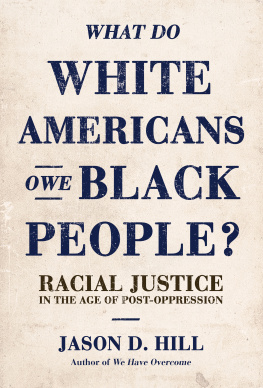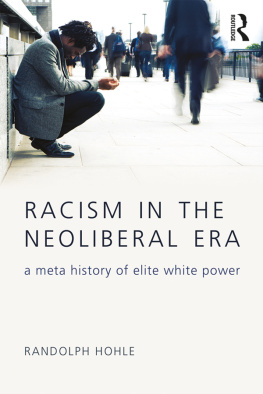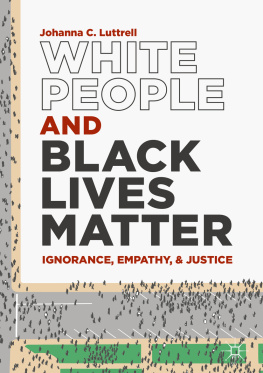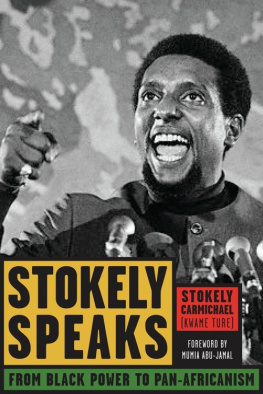First published 1969 by Transaction Publishers
Published 2017 by Routledge
2 Park Square, Milton Park, Abingdon, Oxon OX14 4RN
711 Third Avenue, New York, NY 10017, USA
Routledge is an imprint of the Taylor & Francis Group, an informa business
Copyright 1969 by William W. Ellis.
All rights reserved. No part of this book may be reprinted or reproduced or utilised in any form or by any electronic, mechanical, or other means, now known or hereafter invented, including photocopying and recording, or in any information storage or retrieval system, without permission in writing from the publishers.
Notice:
Product or corporate names may be trademarks or registered trademarks, and are used only for identification and explanation without intent to infringe.
Library of Congress Catalog Number: 2008027282
Library of Congress Cataloging-in-Publication Data
Ellis, William W.
White ethics and Black power : the emergence of the West Side Organization / William W. Ellis.
p. cm.
Includes bibliographical references.
ISBN 978-0-202-36289-2
1. West Side Organization. 2. African Americans--Social conditions--1964-1975. 3. African Americans--Economic conditions. I. Title.
E185.615.E4 2008
322.4--dc22
2008027282
ISBN 13: 978-0-202-36289-2 (pbk)
In schools and colleges, in magazines and newspapers, on television and in public speeches, we are told that America is the worlds most democratic nation, where all have an equal chance to enjoy material abundance, where all are respected equally, where poverty and oppression do not exist. Sometimes questions are raised about how closely America fits this rosy description, but the answers usually state that only slight adjustments need be made and offer no fundamental criticism. Racial oppression, poverty, the tendency toward a garrison state, and the other evils of American life are seen as minor problems, not basic negations of the enchanting image of America so often put before us.
The plain disjuncture between the ideal America and the reality is so great that serious voices among blacks, students, and others now challenge the ethical substance of the nation. To many blacks, the while ruling class of America no longer can say what is right and wrong and certainly can no longer tell blacks how best to pursue their liberation. This feeling is so strong among the adherents of the new militant movements formed under the political symbolism of black power that they have altogether revoked the ethical license of the white ruling class at the intellectual level. These new movements will bargain and contend with whites, even work closely with them for many purposes, but always with suspicion and caution.
The leadership of the black revolt is becoming more diverse as a result of these new forces. Once the province of the black middle class, it is increasingly invaded by those closer to the black masses. The social reformism of the integrationists has been joined by a strong new assertion of the tradition of black nationalism.
Like many intensely local political organizations emerging in urban black America, the West Side OrganizationWSOrepresents these trends. My concern here is with the nature of the leadership of WSO, which recognizes that blacks in America are a people with a distinctive culture and heritage who must build a common future out of their shared past. But the careers and outlook of the leaders, as representatives of what is new in the black revolt, are more important to this book.
Once successful criminals, the four major leaders of the West Side Organization have become successful community politicians. The image of the criminal in American life is often glamorous, particularly as shaped by Hollywood film makers. But the black criminal has never been glamorized. While white Americans easily believe that white criminals run vast organizations in the underworld, they view black criminals as mindless villains. Yet Eldridge Cleaver and Malcolm X, both criminals by ordinary definitions, have become successful ideological leaders; it is stunning that the leaders of the West Side Organization have made essentially the same shift in their lives.
But who is the black criminal? Impoverished black communities consist of people unable to succeed by the normal career routes open to most white Americans. Their failure is not so much their own problem as it is a result of the workings of racism and class discrimination in American society. They are uneducated and unskilled, and the dynamics of their condition prevents them from becoming so. Many are willing to take considerable abuse from racist employers to get jobs as unskilled laborers. Those who are not must pursue criminal careers, at which only a few succeed. Among the black poor, many proud and socially skilled men are professional criminals.
Many blacks see these activities merely as necessary for survival, and to be sure, there are a few who engage in criminality for the sport of it. But some blacks see criminal acts as conscious acts against the social system, as rebellion, even as revolution. It is not a long way from black criminality to political action. If a black criminal begins to view his work as rebellion against the social order, and if he sees it against a decade of overt black revolt, it begins to appear counter-productive. Most black criminals rob and injure other blacks; to be plainly revolutionary, their acts should be directed at the powers that be. The enemy is diffusely defined for the potentially revolutionary criminal as aspects of the social order; for the converted criminal who is a reformer or revolutionist the enemy is more explicitly defined as those who oppress the black community.
Black criminals who become politicians bring skill to their new careers. It takes sensitivity, intelligence, and guile to become a successful criminal, not only ruthlessness. At least as much as a businessman, laborer, or clerk, they also have had to know who controls what and how in order to succeed as criminals operating in an ordered social context.
Yet there are some requirements of a new urban political organization that these men cannot fulfill. They must turn to black professionals for outside help; and the leaders of WSO have turned to whites as well. If white people want to help build the West Side Organization into an entity that can eventually become the government of Chicagos Near West Side, they are welcome. The relationships between leaders of WSO and white people who work closely with them are strained, but so are relationships with black professionals from outside and among the WSO men themselves, though for different reasons.
The tension between black and white requires no explanation. That among the leaders of WSO is relatively simple: suspicion often exists when strong personalities try to work together in exceptional circumstances. But the tension between impoverished leaders and the black intelligentsia deserves special attention. The two groups live under different kinds of oppression. And while the condition of each is known to the other, they understand these conditions differently. A bizarre conservatism has developed among certain black intellectuals, who see themselves as Americans and integrationists and judge black culture an unimportant subcategory of American culture. Leaders close to the black masses, on the other hand, have strong anti-intellectual elements in their thinking that are partly a reaction to the conservatism of some prominent members of the intelligentsia. The nonsensical description of the black community as a pathological social entity is confronted by the meaningless celebration of immediate action and analytically empty railings at the power structure. This gap must be closed. The present generation of the radical black intelligentsia must analyze the conditions under which blacks live and their relationship as a people with white America, and must create a broad-gauged vision of the future. They must articulate these thoughts in a way understandable to leaders closer to the black masses. These leaders in turn must develop an appreciation for the importance of analysis, planning, and ideology to inform their action. Cooperation will lead to better thinking and better action, and will increase the chances that the movement will succeed.




